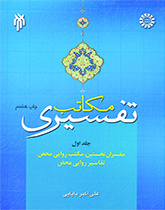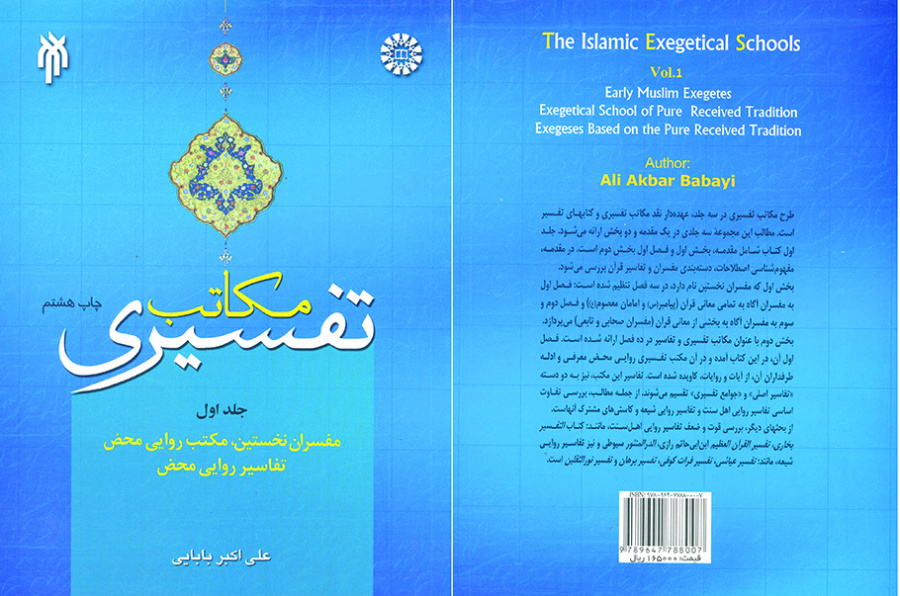

(The Islamic Exegetical Schools (Vol.I
To benefit from the Holy Quran and to receive spiritual guidance from its divine messages requires exact and correct understanding of its verses. With this end in view, the Quranic teachings can be divided into three categories as follows: “Clear and comprehensible for all familiar with Arabic”, “in need of special exegesis”, “in need of thorough explanation and exegesis”. Because of the varieties in verses and the levels of their meanings, Muslim scholars have made attempts at unveiling the verses of the Quran out of which a science called “The Exegesis of the Quran” burgeoned. This endeavor paved the way for the development of methods and schools which dealt with the comprehension of God’s speech.
The exegetic schools, in this book, have been classified into three categories of “pure narrative”, “pure esoteric” and “authoritative (ijtahadi)”. The tenets of each school are explained; the pros and cons of them are set forth; the weak and strong aspects of each school are pointed out based on the exegetic methodology; and finally the most cogent one is identified.
In the Introduction, the definition of key terms, the classification of the exegetist and the categorization of the exegeses are presented. Next, the book has been divided into two parts and four chapters. In the first part, “The Early Exegetists”, the exegetists cognizant of entire meanings of the Quran, Sahābi (related to the companions) exegetists, Tābe’ee (related to the successors) exgetists. The second part is dedicated to “exegetic schools and the exegeses”. The school of Pure Narrative is discussed in this part.
Compiled to teach “exegetic methods” to the BA students of the Quranic Studies, this book explains and classifies the exegetic schools into three categories of “pure narrative”, “pure esoteric” and “authoritative (ijtahadi)”.
Ranked Second in the 5th Best Researcher in the Fields of Religion and Culture Festival, 2003
Selected Book of the 4th Book of the Season Award, 2007





